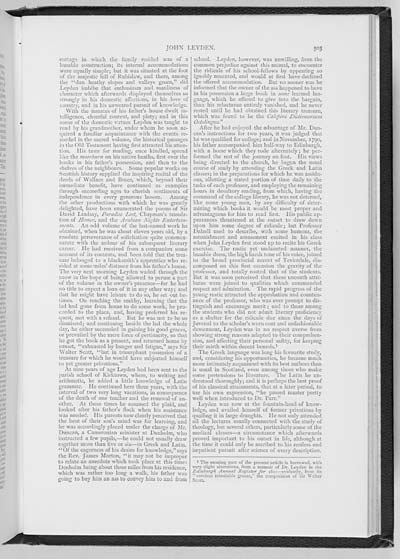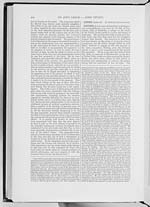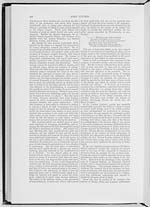505
cottage in which the family resided was of a
humble construction; its internal accommodations
were equally simple; but it was situated at the foot
of the majestic hill of Rubislaw, and there, among
the "dun heathy slopes and valleys green," did
Leyden imbibe that enthusiasm and manliness of
character which afterwards displayed themselves so
strongly in his domestic affections, in his love of
country, and in his unweared pursuit of knowledge.
With the inmates of his father's house dwelt in-
telligence, cheerful content, and piety; and in this
scene of the domestic virtues Leyden was taught to
read by his grandmother, under whom he soon ac-
quired a familiar acquaintance with the events re-
corded in the sacred volume, the historical passages
in the Old Testament having first attracted his atten-
tion. His taste for reading, once kindled, spread
like the moorburn on his native heaths, first over the
books in his father's possession, and then to the
shelves of the neighbours. Some popular works on
Scottish history supplied the inspiring recital of the
deeds of Wallace and Bruce, which, beyond their
immediate benefit, have continued as examples
through succeeding ages to cherish sentiments of
independence in every generous bosom. Among
the other productions with which he was greatly
delighted, have been enumerated the poems of Sir
David Lindsay, Paradise Lost, Chapman's transla-
tion of Homer, and the Arabian Nights Entertain-
ments. An odd volume of the last-named work he
obtained, when he was about eleven years old, by a
resolute perseverance of solicitation quite commen-
surate with the ardour of his subsequent literary
career. He had received from a companion some
account of its contents, and been told that the trea-
sure belonged to a blacksmith's apprentice who re-
sided at some miles' distance from his father's house.
The very next morning Leyden waded through the
snow in the hope of being allowed to peruse a part
of the volume in the owner's presence�for he had
no title to expect a loan of it in any other way; and
that he might have leisure to do so, he set out be-
times. On reaching the smithy, learning that the
lad had gone from home to do some work, he pro-
ceeded to the place, and, having preferred his re-
quest, met with a refusal. But he was not to be so
dismissed; and continuing beside the lad the whole
day, he either succeeded in gaining his good graces,
or prevailed by the mere force of pertinacity, so that
he got the book as a present, and returned home by
sunset, "exhausted by hunger and fatigue," says Sir
Walter Scott, "but in triumphant possession of a
treasure for which he would have subjected himself
to yet greater privations."
At nine years of age Leyden had been sent to the
parish school of Kirktown, where, to writing and
arithmetic, he added a little knowledge of Latin
grammar. He continued here three years, with the
interval of two very long vacations, in consequence
of the death of one teacher and the removal of an-
other. At these times he assumed the plaid, and
looked after his father's flock when his assistance
was needed. His parents now clearly perceived that
the bent of their son's mind was for learning, and
he was accordingly placed under the charge of Mr.
Duncan, a Cameronian minister at Denholm, who
instructed a few pupils,�he could not usually draw
together more than five or six�in Greek and Latin.
"Of the eagerness of his desire for knowledge, "says
the Rev. James Morton, "it may not be improper
to relate an anecdote which took place at this time:
Denholm being about three miles from his residence,
which was rather too long a walk, his father was
going to buy him an ass to convey him to and from
school. Leyden, however, was unwilling, from the
common prejudice against this animal, to encounter
the ridicule of his school-fellows by appearing so
ignobly mounted, and would at first have declined
the offered accommodation. But no sooner was he
informed that the owner of the ass happened to have
in his possession a large book in some learned lan-
guage, which he offered to give into the bargain,
than his reluctance entirely vanished, and he never
rested until he had obtained this literary treasure,
which was found to be the Calepini Dictionarium
Octolingue."
After he had enjoyed the advantage of Mr. Dun-
can's instructions for two years, it was judged that
he was qualified for college; and in November, 1790,
his father accompanied him half-way to Edinburgh,
with a horse which they rode alternately; he per-
formed the rest of the journey on foot. His views
being directed to the church, he began the usual
course of study by attending the Greek and Latin
classes; in the preparations for which he was assidu-
ous, allotting a stated portion of time daily to the
tasks of each professor, and employing the remaining
hours in desultory reading, from which, having the
command of the college library, he was not deterred,
like some young men, by any difficulty of deter-
mining which books it would be most proper and
advantageous for him to read first. His public ap-
pearances threatened at the outset to draw down
upon him some degree of ridicule; but Professor
Dalzell used to describe, with some humour, the
astonishment and amusement excited in his class
when John Leyden first stood up to recite his Greek
exercise. The rustic yet undaunted manner, the
humble dress, the high harsh tone of his voice, joined
to the broad provincial accent of Teviotdale, dis-
composed on this first occasion the gravity of the
professor, and totally routed that of the students.
But it was soon perceived that these uncouth attri-
butes were joined to qualities which commanded
respect and admiration. The rapid progress of the
young rustic attracted the approbation and counten-
ance of the professor, who was ever prompt to dis-
tinguish and encourage merit; and to those among
the students who did not admit literary proficiency
as a shelter for the ridicule due since the days of
Juvenal to the scholar's worn coat and unfashionable
demeanour, Leyden was in no respect averse from
showing strong reasons adapted to their comprehen-
sion, and affecting their personal safety, for keeping
their mirth within decent bounds.1
The Greek language was long his favourite study,
and, considering his opportunities, he became much
more intimately acquainted with its best authors than
is usual in Scotland, even among those who make
some pretensions to literature. The Latin he un-
derstood thoroughly; and it is perhaps the best proof
of his classical attainments, that at a later period, to
use his own expression, "he passed muster pretty
well when introduced to Dr. Parr."
Leyden was now at the fountain-head of know-
ledge, and availed himself of former privations by
quaffing it in large draughts. He not only attended
all the lectures usually connected with the study of
theology, but several others, particularly some of the
medical classes�a circumstance which afterwards
proved important to his outset in life, although at
the time it could only be ascribed to his restless and
impatient pursuit after science of every description.
1 The ensuing part of the present article is borrowed, with
very slight alterations, from a memoir of Dr. Leyden in the
Edinburgh Annual Register for 1811�evidently, from its
"careless inimitable graces," the composition of Sir Walter
Scott.

![]() Universal Viewer |
Universal Viewer | ![]() Mirador |
Large image | Transcription
Mirador |
Large image | Transcription
![]()

